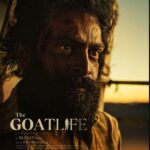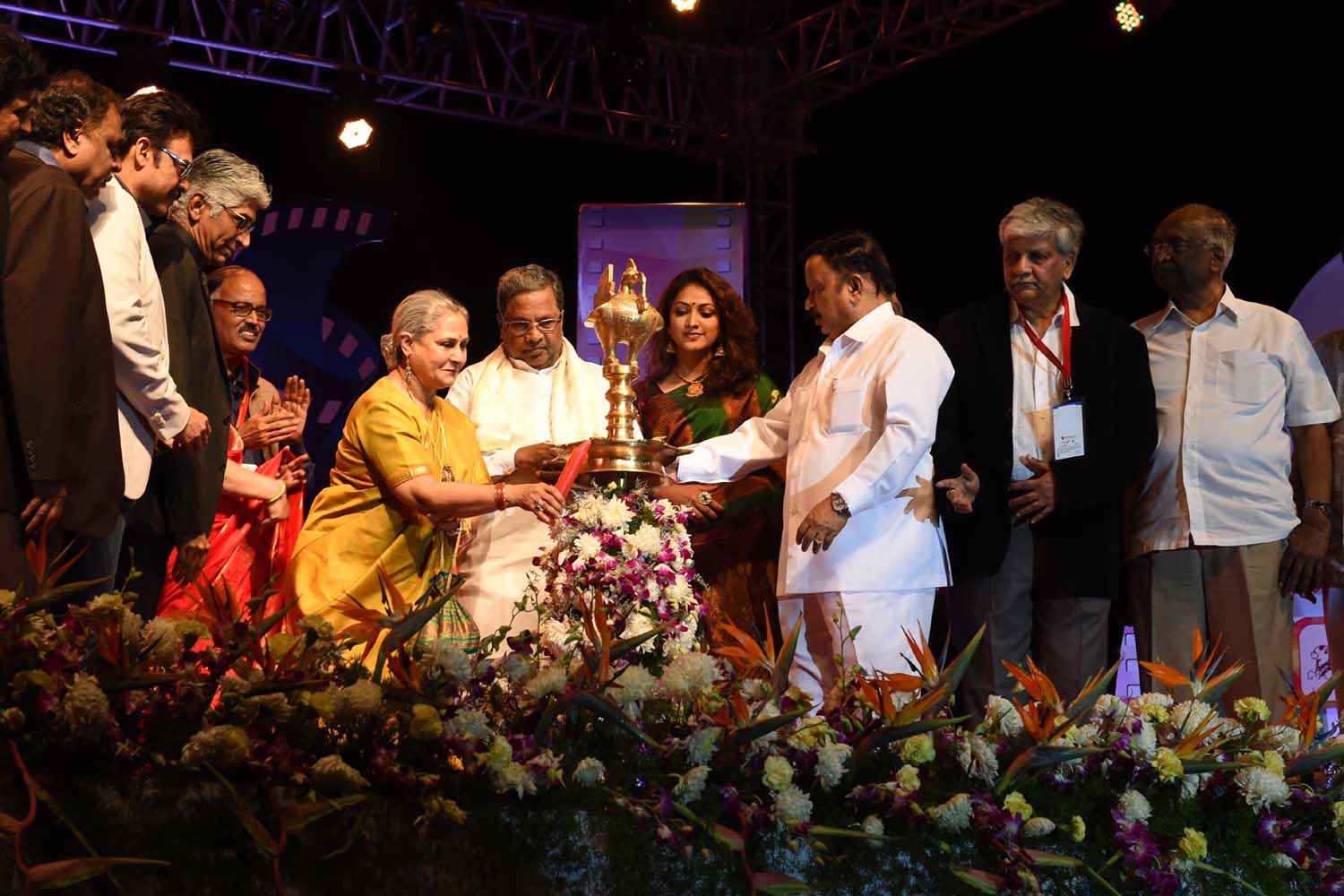‘Nari Shakti’ or ‘Women Power’ is the flavour of the International Competition at the 55th International Film Festival of India (IFFI) all set to flag off from November 20-28, 2024 in Goa.
Incidentally, films by women directors, has become the new normal in film festivals after film festivals lately.
In a distinct departure from the distant past, today though, film festivals’ unique selling point has been the number of women film makers it has on its scroll.
Bringing in singular diversity in thematic representations and global narratives these talented women film makers bring to the table with tableau of tantalising tales and multifarious cinematic vision and craft they showcase.
According to IFFI, “reflecting the festival’s commitment to amplifying underrepresented voices, The Women in Cinema section will highlight emerging talent
and the significant contributions of female filmmakers.”
So much so, Women and Young Emerging Voices in Cinema sees IFFI continuing to champion diversity and inclusion sees as many as 47 films directed by women besides 66 works by youngand debut filmmakers.
That as many as eight of the 15 films in fray in the International competition Section of IFFI vying for the prestigious Golden Peacock Award carrying a handsome prize money of Rs 40 lakh is helmed by ten women directors. And as IFFI puts it is an “ode to women filmmakers.”
The specially curated and hand picked section which showcases some of the most compelling voices and narratives on the global movie marquee is notable for eight of the films which are helmed by women, thereby marking a strong representation of female perspectives in the global cinema landscape.
Indeed, Gulizar by Turkish directed Belkis Bayrak, which has travelled to Toronto International Film Festival, San Sebastian International Film Festival, Tallinn Black Nights Film Festival and Antalya Golden Orange Film Festival where it picked a couple of awards, is sure to grab the attention of the Jury as also the audiences at IFFI.
The film, which spotlights on a young woman seeking freedom and independence from her otherwise constricted, strict and traditional homestead in Turkey, finds herself battling a personal trauma enroute to her betrothed’s home in Kosovo, is an engaging and evocative film, with a bravura performance by the film’s heroine playing the titular character.
The other contender French filmmaker Louise Courvoisier’s debut feature Holy Cow, a coming of age drama revolving around an 18-year-old young man, whose carefree life is turned upside down having to don the onus for his younger sister, is a film to watch out for.
Unlike Gulizar, which is a sober and soulful saga of a young woman, confronting both her inner devils and societal expectations, Holy Cow is about a young man who is suddenly transported into responsibility and adulthood and has the thriller, comedic take as he grapples with his life’s turns and twists.
In a marked departure from the above two fare, Singapore’s rising and young former national fencer turned filmmaker Nelicia Low’s Pierce is a searing and searching psychological character study of two brothers grappling with their enigmatic lives.
The forceful fencing drama spotlights on the older brother who is released from his incarceration and seeks to assist his young high school fencer brother but which is resented by their mother who is unsure of the elder’s motives. The film makes for a gripping and edgy watch as the film delves into the complexities of family and sibling rivalry as it follows two brothers as they struggle to balance their individual ambitions.
Shepherds, by one of leading and emerging talents of new Canadian cinema – Sophie Deraspe, an adaptation of Mathyas Lefebure’s novel D’où viens tu, berger? is based on a real life story a Montreal advertising executive who undertakes vacation to France, seeking solace and fresh start, amidst French Alps donning the life of shepherd.
It is a visually enchanting and engrossing tale, as the converted Provençal shepherd, falls for a civil servant who has cavalierly quit her job and their adventures in the mountains battling natural elements and personal devils.
The film and its director bring in another contrasting study and new perspectives to the scroll of films on play in the international competition section and the thematic concerns each women filmmaker brings into her work.
Likewise, Tunisian-Canadian filmmaker Meryam Joobeur’s debut feature Who Do I Belong To which tells the story of a Tunisian woman, agonising over her two sons who have set upon a Jihad, is caught between her maternal love and her search for truth when her son returns home from war with a mysterious, pregnant wife, is a dark, haunting and evocative experience to live through.
The richly reward Lithuanian filmmaker Saule Bliuvaite’s Toxic focuses on modern day youth, wherein, seeking to escape from the bleakness of their hometown, two teens subject themselves to extremities at a local modelling school, which where promise them a better morrow. The gut wrenching sagacious saga comes across as a raw and riveting coming-of-age tale of camaraderie and extent to which this association would take them to achieve their life’s ambitions.
Spaniard Iciar Bollain with four films in her kitty and bagful of 60 plus awards contends for the Golden Peacock with her lates I am Nevenka a courageous saga of a woman, who in 2001, became the first woman in Spain to win legal battle on sexual harassment against the country’s high-ranking politician.
In a universal real life tale, Nevenka Fernández, having taken the courage of conviction to report sexual harassment by her employer, ensured her tenacious battle pioneered the fight against workplace misconduct in her country, while the entire social system is ranged against her.
The director duo of Manijeh Hekmat and Faeze Azizkhani represent the Iranian participation at IFFI with their forceful Fear & Trembling which revolves around a strict matriarch who is ostracised by her family and has to contend with a rapidly changing world around her. With her niece held by the moral police for discarding the hijab, and the tradition bound matriarch believes she should pay the price, fights with the guilt of her act while seeking deliverance from all her dilemma.
Among the men at the helm vying for the honours with their female counterparts are winner of the audience award at Karlovy Vary International Film Festival Czech director Jiri Madl’s Waves(Vlny) is reflective of the times that Russia and Ukraine is currently facing.
Set during the 1968 Soviet invasion of Czechoslovakia, it is a powerful historical drama which tells the story of a group of journalists risking everything to report the truth as their country’s freedom is in danger. How the group gives it all to safeguard the country’s and their independence and integrity in the face of invasion and State repression forms for a climatic cinematic tour de force.
Panopticon Georgian-American director George Sikharulidze’s debut coming of age drama revolves round a young teen confronting questions of identity, morality, and self as he navigates his life with the film exploring the challenges of growing up in a contemporary post-Soviet Georgian society.
Award-winning Romanian writer and director Bogdan Mureșanu’s The New Year That Never Came is a historical drama that takes viewers through the lives of six individuals during Romania’s 1989 revolution.
Tunisian director Lotfi Achour’s Red Pathis a haunting story of ayoung shepherd who struggles with trauma and loss while living in a rugged rurallandscape.
The not too impressive triad to completes the 15 films seeking to take home the Golden Peacock are Malayalam movie The Goat Life(Aadujeevitham) by Blessy, Marathi crime thriller Raavsaheb by Nikhil Mahajan and Hindi film Article 370 by Aditya Suhas Jambhale.
While The Goat Life an adaptation of Malayalam novel Aadujeevitham tells real-life story exploring themes of migration, survival and the human spirit amidst adversities of life,Raavsaheb centres on man-animal conflict in tribal lands and a quest for justice with Article 370, dealing with the political drama surrounding revocation of special status to Jammu &Kashmir by the Centre.
The chosen 15 movies, according to IFFI, showcase powerful storytelling from around the globe providing a unique perspective on human values, culture and the art of storytelling. These films take viewers into uncharted territories, challenge perceptions, and amplify new voices, the festival adds.
by

S VISWANATH is a veteran film critic who officiates as JURY at several National & International Film Festivals. He deputises as CHIEF CINEMA CURATOR/PROGRAMMER & CREATIVE ADVISOR for Bengaluru International Film Festival (BIFFes). He also curates & advises on the selection of shorts & documentaries for Bengaluru International Short Film Festival (BISFF). Mr Viswanath is the author of “RANDOM REFLECTIONS: A Kaleidoscopic Musings on Kannada Cinema”.







































Leave a Reply